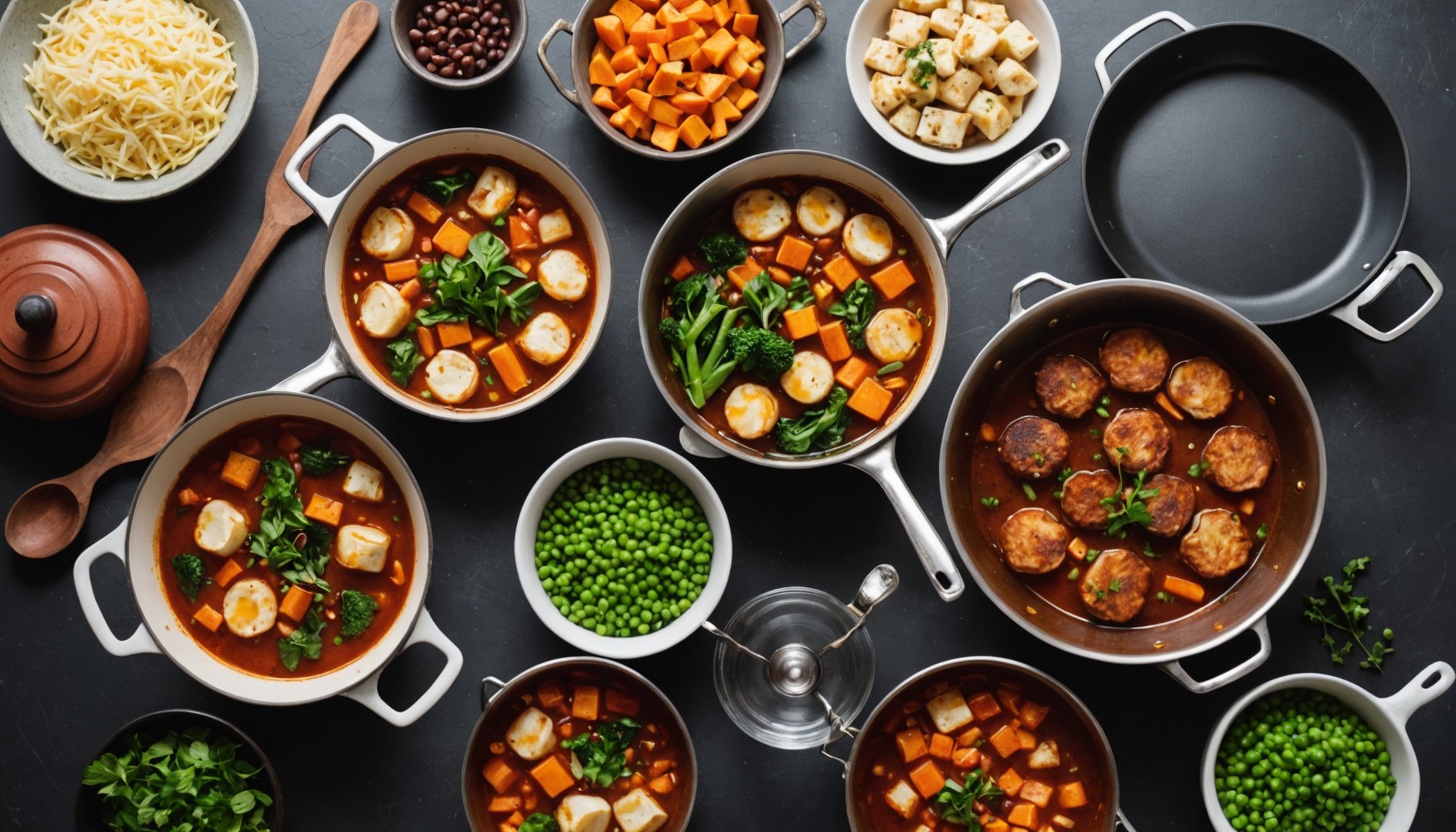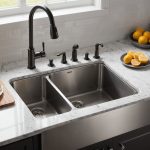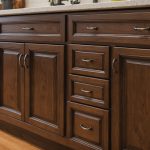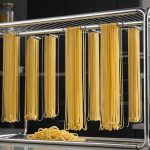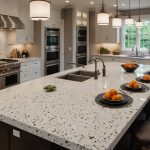Overview of Heat-Resistant Countertop Materials
When selecting heat-resistant countertop materials for your kitchen, understanding their importance is essential. These materials are designed to withstand high temperatures without deteriorating or losing functionality. Such countertops are crucial in busy kitchen environments where hot pans and pots are frequently placed on surfaces.
Key characteristics that define a heat-resistant countertop include thermal stability, durability, and resistance to thermal shock. Thermal stability ensures that the material can endure temperature fluctuations without compromising its integrity. Durability ensures that the countertop maintains its appearance and functionality over time. Resistance to thermal shock means that the material can handle sudden temperature changes without cracking or warping.
Also to discover : Essential innovative features to look for in your next smart refrigerator
Kitchen surfaces that are commonly made from heat-resistant countertop materials include natural stone such as granite and quartz, as well as engineered surfaces like stainless steel and certain ceramics. Each of these options offers unique advantages. For instance, granite is renowned for its durability and natural beauty, while stainless steel provides a sleek, modern look along with excellent heat resistance.
In the kitchen, these countertop options are widely used for tasks like baking, frying, and cooking, where exposure to high heat is inevitable. By choosing the right materials, homeowners can enhance both the functionality and longevity of their kitchen surfaces.
Also to see : Your comprehensive handbook for selecting and maintaining eco-friendly quartz countertops
Comparison of Popular Heat-Resistant Materials
Exploring options for heat-resistant surfaces involves understanding the capabilities and limitations of various materials.
Granite: Pros and Cons
Granite countertops are renowned for their durability and heat resistance. Originating from cooled lava, granite handles hot pots and pans with ease, making it a favourite for culinary enthusiasts. The aesthetic appeal of granite is vast, offering numerous natural patterns and colors, making each piece distinct. However, maintaining its beauty requires regular sealing to prevent stains and scratches.
Quartz: Features and Considerations
Quartz surfaces are engineered from quartz crystals, resin, and pigments, giving them a unique edge. Although they boast impressive durability, their heat tolerance is slightly less than granite. Exposure to high temperatures may cause damage, so caution with hot cookware is advised. The customization options are a major draw, with a vast spectrum of colors available that can suit any kitchen design. Longevity is ensured, provided routine cleaning and care are performed, with no need for sealing, unlike granite.
Porcelain: An Innovative Choice
Porcelain countertops have emerged as a versatile option in modern kitchens. They display admirable heat resistance and withstand demands rather well. Their design versatility allows for thin-slab installations and a variety of applications, including walls. However, while porcelain is heat-resistant, it can chip under impact, requiring mindful handling.
Factors to Consider When Choosing Countertops
Choosing the right countertops is crucial for both functionality and aesthetics in kitchen design. Various aspects, such as material selection and countertop features, play significant roles in this decision.
Durability is a vital factor when assessing potential materials. Countertops need to withstand regular wear and tear. Granite and quartz are known for their excellent durability, withstanding scratches and heavy use effectively. For those looking for something even more robust, consider stainless steel, which remains flawless through intensive use.
Another consideration is a countertop’s heat resistance capabilities. Materials like granite and concrete can endure high temperatures, ideal for avid cooks. In contrast, laminate countertops might be less suitable, as they can scorch under hot pans. The best approach is to consider how frequently you use high heat in your cooking routine.
Aesthetically, your choice should harmonize with your overall kitchen style. If your kitchen embraces a modern look, opt for sleek finishes found in materials like quartz or polished granite. For rustic or classic designs, wood or marble might harmonize better, adding a warm, inviting feel. Remember, the right countertops should complement and enhance your kitchen’s existing design seamlessly.
Practical Tips for Care and Maintenance
Your countertop is an essential part of your kitchen, and proper countertop maintenance ensures it lasts for years. Understanding the unique needs of different materials helps in adopting the right care tips. For instance, natural stone counters often require sealing to enhance their durability. Laminates, on the other hand, are less demanding but can still benefit from being kept clean and dry.
One key to prolonging your countertop’s life is observing heat resistance upkeep. Always use trivets or heat pads when placing hot pots or pans on the surface, as direct heat can cause damage. This is crucial for materials such as granite, where excessive heat can lead to cracking or discolouration over time.
When it comes to cleaning, selecting the right products is essential. Avoid abrasive cleaners and harsh chemicals, as they can scratch or degrade the surface, especially with materials like quartz or wood. Instead, opt for mild dish soap and warm water for regular clean-ups.
In high-heat situations, never assume your countertop can handle it without protection. Over time, even heat-resistant surfaces can wear out if consistently exposed to excessive temperatures. Maintaining your countertop carefully with these guidelines ensures longevity and beauty in your kitchen.
Real-Life Testimonials and Experiences
When exploring countertops for a kitchen renovation, real-life stories and user reviews often illuminate the practical allure and challenges of various materials. Stay ahead of your design decisions by diving into firsthand accounts that reveal the everyday effectiveness of popular options.
Personal experiences speak volumes. Some users share their transition to quartz, lauding its durability and minimal maintenance needs. Others reveal that marble’s elegance doesn’t always match the wear and tear it faces in bustling family kitchens. These insights emphasize how real-world scenarios often deviate from sleek showroom displays.
Testimonials often highlight both the perks and pitfalls. One homeowner recounts a delightful experience with granite, praising its heat resistance but mentioning its susceptibility to staining. Similarly, stainless steel fans appreciate its industrial chic but find its propensity to scratch lightly frustrating. These candid reviews remind us that no material is flawless, and each suits different homeowner priorities.
To round out the understanding, consider vivid case studies of successful kitchen makeovers. For example, one couple’s sustainable choice of recycled glass added a colorful twist to their home while exemplifying eco-friendly design. Stories like these showcase the plethora of transformative options available, encouraging readers to assess their unique material effectiveness priorities.
Conclusion and Recommendation Summary
When considering a countertop purchase, gaining a thorough countertop overview is essential. Each material offers unique features that cater to different needs and preferences. Granite, known for its durability and natural beauty, is ideal for those seeking a long-lasting and elegant addition to their kitchen. On the other hand, quartz offers low maintenance and a wide variety of colors, making it a popular choice for busy households.
To aid in the decision-making process, our purchase guidance suggests evaluating your lifestyle and use case. For example, if you frequently cook with heavy pots and require a heat-resistant surface, granite might be the better option. Conversely, for those prioritizing ease of cleaning, quartz countertops could provide greater satisfaction.
Our expert recommendations emphasize the importance of consulting with professionals when finalizing your choice. These experts can offer invaluable insights tailored to your specific needs, ensuring a functional and aesthetically pleasing result. Additionally, they can provide detailed comparisons of materials, helping you make the most informed decision possible.
In summary, understanding your unique requirements and doing thorough research are key steps in selecting the perfect countertop material. By following our guidance and seeking expert advice, you can confidently make a choice that enhances your kitchen’s beauty and functionality.

